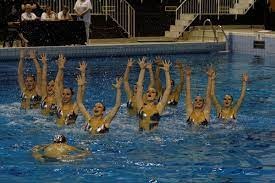Raboyseyee and Ladies,
This coming motzei Shabbis, the heylige Ois and eishes chayil, along with the rest of the family, will be joining the festivities as we celebrate the engagement of our son Jonathan to Rachel Glouberman, she the beautiful daughter of Flora and Steven, OBM, Glouberman. A special mazel tov shout out to Jonathan’s grandparents, Ellie and Irv Bader, and to the entire Grossman and Bader family. Mazel tov as well to Rachel’s grandparents, Sultana & Maurice Jack Mayesh, to grandfather David Glouberman and to the entire extended Glouberman mishpocho. May Rachel and Jon merit to enjoy many decades of blissful marriage.
Levels of Impurity & Supervision by G-d
Just last week (until near the end of the parsha), the Yiddin were still enslaved. According to the Meshech Chochmah and others, they were -after so many years in Egypt- stepped in tumah (impurity) having sunk down to the 49th level. What that means, ver veyst? What happens at that level, ver veyst? How does it manifest in levels 1-48? May we assume these levels to be at least somewhat associated with various forms of sexual depravity along with other things the RBSO abhors? Are they? Mamish? Says who? The medrish describes very vividly just how low the Yiddin had sunk, depicting their decadent celebrations of “Zevach Ha’dam,” the wild orgies of blood and gore that they experienced with their Egyptian masters. Mamish? Says the medrish veyter, azoy: each evening, after the daily brutal regimen of slave labor had concluded, the Egyptian masters would “invite” their Jewish slaves to the amphitheater for an evening of entertainment. Together, master and slave, watched as the gladiators fought the animals, and as animals attacked each other. To add some spice to the program, unarmed human slaves–probably Jews–were sent to do “battle” with the fierce, ferocious animals. By the end of the “show,” the entire audience was in a drunken alcohol-induced stupor and frenzied from the extraordinary scenes of violence, but there was more to come, if you chap. The base of the arena was now covered with corpses of animals and human beings, blood flowing freely throughout. The Jewish slaves together with their Egyptian masters would descend to the lower levels of the coliseum to drink the blood and eat the flesh of the victims! While descending to the lower levels of the coliseum, they were seemingly ascending in their levels of also impurity. Had they reached the 50th level of impurity- however that manifested- they would not have been redeemed. They would have become unfit for redemption. Even at this 49th level of impurity, the RBSO’s angles were arguing that the Yiddin were not redemption-worthy; they should all be drowned in the sea. Yikes and blow me down.
Efsher you’re taka wondering azoy: in what merit were the Yiddin saved? Let’s get serious: being steeped in the 49th level of impurity sounds bad, very. One medrish we were taught in yeshiva tells they were saved because they had three zichusim (merits). They kept their Jewish names, clothing and language. Very nice. We like this answer. We teach it to our kids. Ober, is it true? Is that why they were saved? Says the heylige Zoihar that they were saved davka because they were about to be lost forever as a result of their tumah level; they were contaminated. Not with Covid-19 but with Tumah- 49! And let’s get real: we know that the Yiddin were comfortable in Mitzrayim. They worshipped avoida zoroh (idols), and were almost totally assimilated, however that manifested. So, which is it? Were they impure and totally assimilated? Or, were they a holy people wearing special distinguishable clothing who refused to integrate into Mitzri society? And the answer? Ver veyst, and it depends on which exegete you believe.
Says the medrish (Mechilta) that the Yiddin were naked -of mitzvis that is, unworthy of redemption- until the RBSO gave them two to perform. They were saved davka (specifically) because they performed these two. They were ordered to eat the korban Pesach (Paschal offering) – Jews very rarely say no to a good meal- and, as mentioned just last week, they were given the mitzvah of the bris milah (circumcision). They were also meritorious -so says another exegete- because they did not abandon their heritage and they maintained the ancient traditions of their ancestors. What those traditions were, ver veyst? They did not modernize their names, they did not modernize their dress, they did not forsake their language, and they did not engage in sexual immorality. Of course not! Wait! More merits: The Jewish women in Mitzrayim were especially righteous, so says the heylige Gemora (Soitah 11). As well, at least some of the men did not participate in idol worship. In fact, the entire Sheyvet Levi abstained from avoidah zoroh; amazing. Check out the heylige Gemora Yoma 66 for more. Most importantly, they never ceased studying the traditions and customs handed down to them from Avrohom Oveenu. The bottom line according to this medrish is that the Yiddin upheld standards of conduct while living amidst the totally corrupt Mitzrim.
 Is that true? Didn’t we just learn from the heylige Zoihar that the Yiddin were considered to be at the forty-ninth level of tumah? We did! Oib azoy (that being said), if there were only 50 levels, weren’t the respective levels of the two nations close together? What goes down at the 50th level? We know that the Egyptians were all sexually immoral -so did Rashi tell us (Bereishis 12:19; Vayikra 18:3)- and idol-worshippers. If the Mitzrim were on the 50th level of tumah and the Yiddin on the 49th, how different were they? On the other hand, the question of why the Yiddin merited a miraculous redemption from Mitzrayim is addressed explicitly in the Novee (Yechezkel 20: 5-10) where we read this. The RBSO explains that He had desired to redeem the Yiddin from Egypt and bring them into “a Land of Milk and Honey, the most beautiful of all lands.” However, the RBSO wanted them to “deserve it.” He requested that they remove the Egyptian idols from their midst. The RBSO tells Yechezkel that the Yiddin refused, and ultimately, they were redeemed not based on any merit of their own but solely for the sake of the RBSO’s Name, so that there not be a chillul Hashem (desecration of G-d’s name). In other words: what will the goyim say?
Is that true? Didn’t we just learn from the heylige Zoihar that the Yiddin were considered to be at the forty-ninth level of tumah? We did! Oib azoy (that being said), if there were only 50 levels, weren’t the respective levels of the two nations close together? What goes down at the 50th level? We know that the Egyptians were all sexually immoral -so did Rashi tell us (Bereishis 12:19; Vayikra 18:3)- and idol-worshippers. If the Mitzrim were on the 50th level of tumah and the Yiddin on the 49th, how different were they? On the other hand, the question of why the Yiddin merited a miraculous redemption from Mitzrayim is addressed explicitly in the Novee (Yechezkel 20: 5-10) where we read this. The RBSO explains that He had desired to redeem the Yiddin from Egypt and bring them into “a Land of Milk and Honey, the most beautiful of all lands.” However, the RBSO wanted them to “deserve it.” He requested that they remove the Egyptian idols from their midst. The RBSO tells Yechezkel that the Yiddin refused, and ultimately, they were redeemed not based on any merit of their own but solely for the sake of the RBSO’s Name, so that there not be a chillul Hashem (desecration of G-d’s name). In other words: what will the goyim say?
And listen to this: The medrish (Shmois Rabbah 21:8) attributes the splitting of the Red Sea to the merit of Avrohom or Yaakov. Another medrish, based on Shir HaShirim 2:8, has the RBSO saying: “If I look at Israel’s deeds, they will never be redeemed!” Oy vey! Thus, He redeemed them in the merit of the Patriarchs. The continuation of that verse is applied by the Gemora (Rosh Hashono 11A) to the Matriarchs, and thus the Maharal (Gevuros Hashem, ch. 60), mentions that the redemption was also in the merit of the Matriarchs. Shoin and just like that, the Yiddin went from zero merit and from 49 levels of impurity to being full of merits. Not their own mind you but saved by the merits of others. Gishmak! Another medrish (Bamidbar Rabbah 3:6) says the redemption was in the merit of Yaakov or the Matriarchs, or the Tribe of Levi (who, unlike the other Yiddin, did not worship idols). And one final medrish we will reference (Shmois Rabbah (15:3) suggests that the RBSO went searching for something to warrant redeeming the Yiddin. Not successful, He redeemed them due to the merit of Moishe and Aharoin. Is that what went down? Doesn’t the heylige Toirah tell us that the RBSO saved the Yiddin because of the sincerity of their cries and the brutality of the Egyptians? It does. And the bottom line? Why were they saved? Ver veyst?
According to the many who posit that the Yiddin had little merit and weren’t deserving necessarily -davka because the Yiddin had but one level down to go on the tumah elevator before reaching the point of no return- the RBSO needed to move fast and get His people out! Had the Yiddin remained in Egypt for even a few moments longer, they would have been spiritually obliterated. And for that reason, the heylige Toirah demands (Shmois 12:11): “Vah’ah’chahl’tem oi’soi b’chee’poh’zoin,” (You shall eat it [the Pascal offering] in haste) –eat it and flee before you reach the point-of-no-return as your passions for decadence and violence take control. And now you know! And for that reason, Raboyseyee, they also left in a hurry and had no time for the bread to rise and bake. The good news: all this rushing gave us matzo the great Yom Tov of Pesach, and above all, myriad hotels all over the world where we can enjoy the vacation while recalling and retelling how the Yiddin were once enslaved. The final bottom line on this subject is this: for whatever reason and bad as they were as a group, the RBSO chose the Yiddin; the others must have been much worse. Shoin and here we are.
More good news: it’s one parsha later and what a difference one shabbis makes. This week the Yiddin are free, mamish. After a brief period of heightened exuberance capped off by singing and praising the RBSO for His efforts, they will quickly revert back to their old ways and habits. We will be reading of their foibles and shenanigans this week, more in the coming weeks, and throughout a good portion of Sefer Bamidbar. Stay tuned, the details are -at times- shockingly ugly.
And with all that, welcome to Parshas Beshalach most well-known for famous Oz Yoshir song which Moishe led along with the B’nai Yisroel (the males of Israel), and the response in song and dance by Miriam and the women. Also specifically delineated are the five different times the Yiddin -as a collective- complained about their new found freedom. Not once and not twice but five different times in the parsha were the Yiddin suddenly no longer exuberant about being freed. Salve mentality? Let’s quickly review each and every issue they raised before we get to the topic of the week.

In 15:24, they are complaining over the bitter water at Moro (Marah); in 16:3, they complain in the midbar Sin; in 16:20, they broke the rules by collecting more mana than they were supposed to; in 16: 27-29, they were caught attempting to collect manna on the heylige Shabbis; and in 17:2-3, they complain over the lack of water at Rephidim. Oy vey! The bottom line: having been enslaved for 210 years -according to some but not all, and certainly not the RBSO who specifically mentions 430 years of presence the Yiddin had in Mitzrayim- it appears that they just weren’t quite ready for prime time. They were not yet fully formed free people and were still behaving with that slave mentality. They were still broken. Given similar circumstances and associated trauma, many -especially in the early years- will almost always get it wrong. It takes time. Trauma victims know this only too well. Veyter.

A lot going on in our parsha. This year -our 13th time around Beshalach, we will cover one more topic. Les-man-dipolig (few would argue) that kriyas-yam-suf- the splitting of the sea- was one of the biggest nissim (miracles) the RBSO performed on behalf of His about to be Chosen People. Read all the details in the parsha. We have -in the many posts on this parsha- covered most of the high and lowlights. Check them out at www.oisvorfer.com. This year, we’ll shall review the song the Yiddin spontaneously sang following their safe arrival onto dry land. Zicher you know that as a result of Moishe’s famous Oz Yoshir single, this Shabbis is also called Shabbis Shira (Shabbos of Song). Spirits are uplifted and many are taka inspired as the baal koirah (Torah reader) chants its 19 verses with special cantillations. We are taught that Moishe sang along with the B’nai Yisroel meaning he sang with the males. Ober what happened immediately after Moishe led the Yiddin in song?
Says the heylige Toirah (Shmois 20, 21) azoy: “Miriam the prophetess, Aharoin’s sister, took a drum (or a timbrel) in her hand and all the women followed with drums and with dancing. And Miriam led them in song, ‘Sing to G-d for His great victory, horse and rider He cast into the sea.’”
She did what? Did we just read the Miriam and other women sang, played instruments and also danced with or in front of the men and no one complained? Women singing and dancing alongside the men? And playing instruments? Say it’s not so and oy vey! When the Ois was growing up, each of these activities was strictly verboten for women, especially those married and especially in front of or near men. And if no one complained too loudly in the 1960’s, that’s certainly not the case in today’s times. Women singing in earshot of men and efsher also dancing? Yikes! Unheard of, unthinkable, unyeshivish, not good for the shidduch, and unacceptable! Ober, what taka took place? Miriam and her choir band entertained the men and everyone was ok? No one got bent out of shape? Say it’s not so please. Hey, what happened to kol Isha or Koil B’isha Erva (a woman’s voice is a sexual stimulant), a law put on the books by some rabbis proclaiming that women’s voices were mamish sexually stimulating? And mixed dancing? Oy vey! What’s pshat here and how is it that the heylige Toirah seemingly didn’t have an issue with Miriam and her first ever all-women’s band and choir singing, performing and dancing in front of all the men? Is this mutir (ok)? And if it was back then, what’s happened since? But wait! There’s more: Did Miriam and millions of women -married and still single- cross over the Yam Suf (Reed Sea) together with the men? Were they engaged in a mixed general swim? Mamish together? Let’s find out who made waves.

Says the heylige Gemora (Brochis 24a) azoy: “a woman’s voice is a sexual stimulus” and accordingly, the good rabbis, worried that chazerim -like many of you- would listen to women sing and then -chas v’sholom (heaven forbid)- become stimulated, if you chap. And then? Then, one of you may act out in a chazerish fashion, if you chap. One might be tempted to abuse his instrument. Therefore, they forbade koil Isha (woman’s voice). Shoin, fartig (over and done); women’s voices were silenced. Some hold that men shouldn’t even talk to women for that reason. Some are more machmir (stricter) and don’t talk to their own wives. Those in the latter category have other reasons; marriage can -in certain cases- do that. Over the years many have pontificated over this issue and of course dissected every word of the two pisukim describing this event to see if Miriam and the girls (women) taka really sang, or sang only with other women. And if she did sing near the men, was it mamish with the men, before them, or, but after the men sang? What really happened? Ver veyst? Were the women standing in the back, in the front, or efsher up in the balcony? Was there a mechitza? One thing is zicher: there is no consensus and not a single eye witnesses ever reported back to give us the real facts. Not even Serach bas Asher. One thing is zicher: The heylige Toirah tells us that Miriam sang. Case closed? Not! Our sages could not accept this notion and decided to create doubt by introducing various theories. Excellent defense attorneys they would have made. Let’s examine a few possibilities.
Efsher she and her band were only lip synching -a model since emulated by other famous performers from time to time- and Miriam’s performance, was efsher the first lip-synching band in recorded history, ver veyst. Could be. And if that’s the case, of course they weren’t singling live in front of the men and the men were not being stimulated. Seemingly, men only get stimulated when the performance is live. Is that true? A few suggest that the entire episode didn’t take place: she wasn’t singing at all. But doesn’t the heylige Toirah tell us that she sang and banged away at the instruments the women brought along for mamish such an occasion? It does and very specifically so! Ober, that didn’t stop those who could not fathom that the heylige Toirah allowed this to happen, to drum up their own version of what took place at the bandstand.
Of-course it’s difficult for the good rabbis to prohibit something that is clearly permitted in the heylige Toirah. What to do? And taka says the TAZ that the sages are unable to forbid something the heylige Toirah explicitly permits; the heylige Gemora cannot contradict the Toirah. What to do? Instead, they went about trying to figure out if the entire story actually took place. And if it didn’t, they could prohibit it. In other words: if the heylige Toirah says it’s mamish ok, the Gemora cannot prohibit it outright. And the question is azoy: did it or didn’t it happen? Did Miriam and her band sing and play or not? Let’s then begin by reading innaveynig (the text of the heylige Toirah). Says the heylige Toirah 14:20-21, azoy.
| כ וַתִּקַּח מִרְיָם הַנְּבִיאָה אֲחוֹת אַהֲרֹן, אֶת-הַתֹּף–בְּיָדָהּ; וַתֵּצֶאןָ כָל-הַנָּשִׁים אַחֲרֶיהָ, בְּתֻפִּים וּבִמְחֹלֹת. | 20 And Miriam the prophetess, the sister of Aaron, took a timbrel in her hand; and all the women went out after her with timbrels and with dances. |
| כא וַתַּעַן לָהֶם, מִרְיָם: שִׁירוּ לַיהוָה כִּי-גָאֹה גָּאָה, סוּס וְרֹכְבוֹ רָמָה בַיָּם. {ס} | 21 And Miriam sang unto them (alternatively: Miriam answered them): Sing ye to the LORD, for He is highly exalted: the horse and his rider hath He thrown into the sea. |
Nu, as we just read in posik 21, it appears that Miriam mamish sang. Fartig! Ober, others suggest that based on the wording, specifically the Hebrew word of Va-ta-an- (verse 21 above) that Miriam did not at all sing. If not singing, what was she doing and why did we all grow up thinking that she did? Nu, let’s see what a few had to say about what took place.
Citing the Mechilta, says Rashi azoy: she did sing ober Moishe sang the song to the men and they responded after him. Separately Miriam sang the song to the women and they responded after her. Bottom line: they both sang, ober maybe not together, and all is kosher. Say others: Miriam sang for the women and while Moishe sang for the men. Ober, says Reb Aryeh Kaplan (The Living Toirah) azoy: the women sang at the same time as the men. OMG! And says the Yalkut Shimoni: va-ta’an refers to actual singing, implying that Miriam sang the song. Ok she sang and so what? Says Rashi and of course he knew better, azoy: not to worry because the women seemingly had a separate sing-off. Moreover, he suggests that neither Moishe nor Miriam really sang their songs; they merely chanted them as poetry of praise. Chanting and singing are not the same. Chanting is kosher and not stimulating, and poetry puts one to sleep. On the other hand, singing is not kosher -efsher because it is stimulating and veyter. Got all that?
Says the Medrish azoy: seemingly the malochim (angels) wanted to sing praises to the RBSO before the women but Miriam answered them and called for the women to sing. This explains the language of va-ta’an as meaning that she answered the angels; she called for the women to sing first. Said Reb Saadia Gaon: she did sing but not exactly. Miriam and the women recited -meaning spoke – in alternation, Moishe’s entire song. Ober says Targum Unkelos not so: the women sang the song. What do we know so far? Not much.
Said the Radak (Sefer Ha-Shorashim) azoy: the word va-ta’an does not mean that she answered; instead, it means that she testified. She did? Was she subpoenaed? According to the Radak, she merely was answering or testifying that what Moishe sang was correct. And so also says Reb. Zalman Sorotzkin (Oznaim La-Toirah) where he explains that Miriam only indicated her -and the women’s- approval to Moishe and the men’s choir. She/they answered the men, in agreement to the men’s song.
The bottom line: What happened back in the midbar, ver veyst? Seemingly she (Miriam) -according to many- did sing, dance and play an instrument. How do we know this? Because the heylige Toirah says so and who are we to argue with the RBSO? No good can come from that. Ober much later, as the people (the Yiddin) started becoming a shtikel modern and were moving off the derech -they began mingling at dance clubs, social mixers run by shuls and other venues which allowed for women to sing and men to become stimulated -there are many such venues- our rabbis had enough, and shoin. Women needed to be silenced.
What to do? How to go about banning a practice that Miriam the Prophetess initiated? What to do when social mixers were being held in shul mamish? The rabbis were mamish going out of their keylim (minds) and decided that it was time to take another look at the gantze Miriam singing incident in this week’s parsha, and many decided that it never happened. She was there but didn’t sing. Maybe she had a sore throat and couldn’t sing that day, ver veyst. Efsher (maybe) she sang but was off key. Maybe she was merely davening loud, ver veyst, but singing? Not. One thing is zicher: mixed swimming did the Yiddin go as they crossed the Reed Sea and few complained. Maybe the women were wearing early versions of the shvimkleyd (modest women’s bathing suit/ensemble), ver veyst. Or did they? Mistama in years to come, we will read that the men and women crossed separately as well, ver veyst. Zicher there’s still room for more revisionism.

Says the MeiAm Loi’ez, (Reb Yaakov Culi) mamish gevaldig azoy: Miriam and the women used musical instruments while Moishe and the men did not. Taka why? Seemingly the instruments were intended to drown out the sounds of the song so the men would not hear their sexy voices and become overly stimulated. Overstimulated men in a hot midbar (desert) can lead to trouble, as we will be learning this summer in the parshas to come. In other words, they did sing but since they were also playing instruments, their voices were masked and therefore this is not considered kol Isha, and therefore, the men weren’t stimulated, and the rabbis were happy. Shoin!
Ober listen to his even more amazing pshat. Says The Chida this bombshell: it’s taka emes that the men and women sang together and the men mamish heard their voices, ober it was kosher. Kosher stimulation? Hmmm! How does that work? Because the RBSO was seemingly there. His Divine Presence rested on them. Therefore, mixed singing was not a problem. With the RBSO or His presence in attendance, mixed swimming, women singing, and mixed singing where that men hear their voices, was not prohibited. An early version of rabbinical supervision? Did the RBSO own and operate the first ever kosher supervision gisheft (business)? What can be better than the RBSO’s supervision? And for that reason alone, it’s always good to invite the RBSO to the next party. And of course, that’s why wherever a person goes, he should go with the RBSO. Gishmak!

A gittin Shabbis-
The Heylige Oisvorfer Ruv
Yitz Grossman
